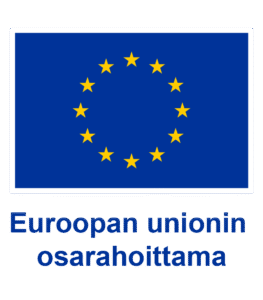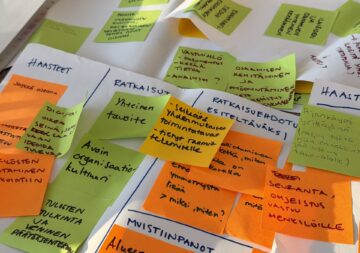
Small and Medium-sized Enterprises (SMEs) may view academic research as too theoretical or non-applicable to their needs. This article examines the literature around the topic, focusing on research utilization strategies, focus, impact assessment, and access challenges.
Author: Jaani Väisänen
Introduction
Universities and other Higher Education Institutions (HEIs) play a central role in innovation and business growth. Traditionally, they collaborate with industry through formal mechanisms such as joint research, incubators, and licensing. The Triple Helix model and its successors have framed these University-Industry Collaborations (UIC) as key drivers of knowledge exchange and economic development (Etzkowitz & Leydesdorff 2000; Cai & Etzkowitz 2020). However, much of the existing research focuses on structured, long-term partnerships, often overlooking the potential for Small and Medium-sized Enterprises (SMEs) to independently access and utilize publicly available scientific research.
This gap is particularly relevant for SMEs, which may lack the resources for formal collaborations but can still benefit from academic knowledge to enhance their competitiveness. Understanding how SMEs leverage academic research outside traditional UIC frameworks is crucial for both theory and practice, as it highlights alternative pathways for knowledge transfer and innovation.
As part of LAB University of Applied Sciences’ NOKKA project, Väisänen (2025) conducted a meta-analysis of relevant literature regarding SMEs and the utilization of scientific research results from four perspectives: utilization strategies, research focus, impact assessment, and access challenges. The NOKKA project aims to encourage and assist SMEs in finding, accessing, interpreting, and utilizing scientific literature. This literature can range from research project reports and other dissemination materials aimed at the general public to academic peer-reviewed journal articles and industry whitepapers.
Utilization Strategies
To better understand how existing scientific research results are used, it is necessary to explore how SMEs utilize this type of knowledge. SMEs do not passively receive academic knowledge; instead, they actively engage in knowledge management, transfer, and collaboration.
Successful strategies often involve participation in science park incubators, local innovation networks, and government programs (Bortoluzzi et al. 2022; Nowacki & Stanieski 2012; Marom & Lussier 2017). In these collaborations, universities need to act more as knowledge facilitators, while SMEs drive innovation. Presenting the latest research results in an accessible and easy-to-read format accelerates the knowledge transfer process.
Research Focus
Mapping the research focus is necessary to understand which academic domains are most relevant and beneficial for SMEs. Ndlovu et al. (2025) identify digitalization, business model innovation, and sustainability as dominant research themes in SME literature, highlighting the importance of aligning academic research with the needs of SMEs. Furthermore, Bortoluzzi et al. (2022) and Parra-Sanchez & Talero (2023) emphasize the connection between open innovation and Industry 4.0. SMEs tend to leverage academic insights for strategic shifts in business models (Sabando-Vera et al. 2022), indicating a holistic approach toward long-term competitiveness. Therefore, when disseminating research results to SMEs, it is crucial for universities to have a comprehensive understanding of the business landscape, including commercialization pathways, rather than focusing solely on narrow technical issues.
Impact Assessment
Assessing the impact of academic research on SMEs is vital for demonstrating the value of knowledge transfer and informing both policy and practice. The impact can be assessed from multiple perspectives, such as operational, innovation, growth, and financial performance. While some studies focus on direct financial outcomes (Yadevani et al. 2024; Amorós 2007), others adopt a more holistic view, considering readiness for change and the development of an innovative organizational culture (Manville et al. 2018). To disseminate scientific research results most effectively, it is important that both SMEs and researchers recognize the value of capturing a broad spectrum of benefits.
Access Challenges
Despite the potential benefits, SMEs often face significant barriers in accessing and applying academic research. These challenges include financial constraints, limited absorptive capacity, regulatory burdens, and lack of infrastructure. Kindström et al. (2024) and Ridzwan et al. (2024) both highlight that SMEs’ growth and survival are frequently threatened by difficulties in accessing finance, navigating complex regulatory environments, and overcoming operational inefficiencies.
The type of SME (e.g., family-owned vs. technology-based) and the presence of an entrepreneurial mindset influence both challenges and strategies. Power dynamics between SMEs and larger actors can also hinder effective knowledge transfer.
Conclusion
From the Triple Helix perspective, the results highlight that effective knowledge transfer is not solely a matter of bilateral university-industry collaboration, but rather a complex, multi-actor process where each helix—university, industry (SMEs), and government—plays a distinct and evolving role.
Universities are increasingly called upon to act as knowledge facilitators rather than mere producers of research. The evidence shows that SMEs benefit most when research results are disseminated in accessible, actionable formats and when universities actively participate in local innovation ecosystems, such as science parks and incubators. This shift from a “push” model of knowledge dissemination to a more interactive, demand-driven approach aligns with the Triple Helix’s emphasis on hybrid roles and boundary-spanning activities.
Industry, particularly SMEs, emerges as an active agent in the innovation system. Rather than being passive recipients, SMEs engage in strategic knowledge management, seek out research relevant to their business models, and drive innovation through absorptive capacity and entrepreneurial orientation. The diversity of utilization strategies and research foci observed in this study underscores the heterogeneity of SMEs and the need for flexible, context-sensitive knowledge transfer mechanisms.
Government—the third helix—plays a crucial enabling role, especially in addressing access challenges. Policy interventions that support open access to research, fund intermediary organizations, and reduce regulatory and financial barriers are essential for leveling the playing field for SMEs. The results suggest that government support is particularly important for fostering inclusive innovation and ensuring that the benefits of academic research extend beyond large firms to the broader SME sector.
References
Amorós, J. E., Planellas, M. & Batista-Foguet, J. M. 2007. Does internet technology improve performance in small and medium enterprises? Evidence from selected Mexican firms. Academia (Consejo Latinoamericano de Escuelas de Administración). Vol. 39(39), 71–92.
Bortoluzzi, G., Chiarvesio, M., Romanello, R., Tabacco, R. & Veglio, V. 2022. Servitisation and performance in the business-to-business context: the moderating role of Industry 4.0 technologies. Journal of Manufacturing Technology Management. Vol. 33(9), 108–128.
Cai, Y. & Etzkowitz, H. 2020. Theorizing the Triple Helix Model: Past, Present, and Future. Triple Helix. Vol. 7, 189–226. Cited 18 Nov 2025. Available at https://doi.org/10.1163/21971927-bja10003
Etzkowitz, H. & Leydesdorff, L. 2000. The dynamics of innovation: from National Systems and “Mode 2” to a Triple Helix of university–industry–government relations. Research Policy. Vol. 29(2), 109–123. Cited 18 Nov 2025. Available at https://doi.org/10.1016/S0048-7333(99)00055-4
Kindström, D., Carlborg, P. & Nord, T. 2024. Challenges for growing SMEs: A managerial perspective. Journal of Small Business Management. Vol. 62(2), 700–723. Cited 18 Nov 2025. Available at https://doi.org/10.1080/00472778.2022.2082456
Manville, G., Karakas, F., Polkinghorne, M. & Petford, N. 2018. Supporting Open Innovation with the use of a Balanced Scorecard Approach: A Study on Deep Smarts and Effective Knowledge Transfer to SMEs. Production Planning and Control. Vol. 30, 1–13.
Marom, S. & Lussier, R. N. 2017. Developing a Small Business Management Concentration within a Business Degree. Small Business Institute Journal. Vol. 13(2), 15–30.
Ndlovu, M. N., Ndlovu, E. N. & Ebewo, P. E. 2025. The Intersection of Business Models and SME Performance: A Bibliometric Analysis of Research Trends. Administrative Sciences. Vol. 15(4), 143. Cited 18 Nov 2025. Available at https://doi.org/10.3390/admsci15040143
Nowacki, R. & Staniewski, M. W. 2012. Innovation in the Management of SMEs in the Service Sector in Poland. Amfiteatru Economic. Vol. 14(6), 755–773.
Parra-Sánchez, D. & Talero, L. 2023. Digital transformation in small and medium enterprises: a scientometric analysis. Digital Transformation and Society. Vol. 3(3), 257–276.
Ridzwan, R., Baharudin, M., Ramzi, M., Rusok, N. & Ghazali, A. 2024. A Survival Challenges of Small and Medium Enterprises in Turbulent Markets: Literature Review. International Journal of Academic Research in Business and Social Sciences. Vol. 14(3), 1–15.
Sabando-Vera, D., Yonfa-Medranda, M., Montalván-Burbano, N., Albors-Garrigos, J. & Parrales-Guerrero, K. 2022. Worldwide Research on Open Innovation in SMEs. Journal of Open Innovation. Vol. 8(1), 20–45. Cited 18 Nov 2025. Available at https://doi.org/10.3390/joitmc8010020
Väisänen, J. 2025. Leveraging Scientific Research for Business Improvement: A PRISMA Review. Proceedings of the 2nd International Conference on Education Research ICER 2025. Vol. 2(1), 1–20.
Yadewani, D., Pandi, O., Syafrani, S., Nurofik, A. & Poddar, S. 2024. Impact Of Government Policies On The Knowledge Base Of Sustainable Small And Medium-Sized Enterprises. Jurnal Ilmiah Ilmu Terapan Universitas Jambi. Vol. 8, 251–266.
Author
Jaani Väisänen, PhD, is working as a principal lecturer in the LAB University of Applied Sciences’ Business unit. He is part of LAB’s Growth and Commercialization research group, where he studies data-driven solutions for driving better and more responsible innovation capabilities.
Illustration: https://pxhere.com/fi/photo/1448605 (CC0)
Reference to this article
Väisänen, J. 2025. A look into SMEs and academic research. LAB Pro. Cited and date of citation. Available at https://www.labopen.fi/lab-pro/a-look-into-smes-and-academic-research/







